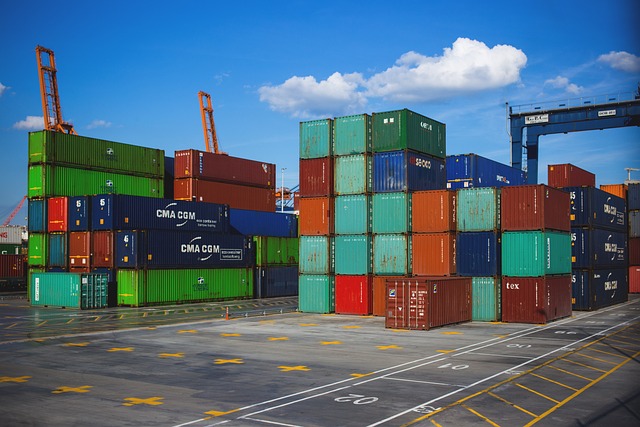How to Find the Best Shipping Service for Your Business

Strong 8k brings an ultra-HD IPTV experience to your living room and your pocket.
In today's global marketplace, efficient and reliable shipping services are vital for businesses of all sizes. Whether you're running an e-commerce store, a brick-and-mortar shop, or a manufacturing company, the shipping service you choose can significantly impact your customer satisfaction, operational costs, and overall success. Finding the best shipping service for your business requires careful consideration and research. In this article, we will guide you through the process of selecting the right shipping service to meet your specific needs.
1. Define Your Shipping Needs
Before you can choose the best shipping service for your business, you need to clearly define your shipping needs. Start by asking yourself the following questions:
- What types of products do you sell? Are they small, fragile, or oversized?
- Where do you ship your products? Do you serve domestic or international customers?
- What is your average order volume and frequency?
- Do you require special shipping services, such as tracking, insurance, or expedited shipping options?
- What is your budget for shipping costs?
By answering these questions, you'll gain a better understanding of your unique shipping requirements, which will help you narrow down your options.
2. Research Shipping Providers
Once you've established your shipping needs, it's time to research shipping providers. There are several types of shipping services to consider:
- National Carriers: Companies like FedEx, UPS, and DHL are well-known national carriers that offer a wide range of shipping options for businesses of all sizes.
- Regional Carriers: Regional carriers may provide cost-effective solutions for businesses operating within specific geographic areas. Research local carriers that serve your target market.
- Postal Services: National postal services like USPS in the United States and Royal Mail in the UK offer reliable and cost-effective shipping options, especially for smaller packages.
- Freight Shipping: If you deal with large, heavy, or bulk shipments, consider freight shipping providers like Maersk, CMA CGM, or XPO Logistics.
- Third-Party Logistics (3PL) Providers: 3PL companies offer comprehensive shipping and logistics solutions, handling everything from warehousing to order fulfillment. This option can be beneficial for growing businesses.
3. Compare Rates and Services
After identifying potential shipping providers, compare their rates and services. Pay attention to the following factors:
- Shipping Costs: Compare the shipping rates, including any fees, surcharges, and additional charges that may apply. You can try Shiply for the best shipping rates, where you can get up to 75% less than standard rates.
- Service Speed: Evaluate the transit times offered by different providers and determine if they align with your customers' expectations.
- Tracking and Insurance: Check if the provider offers tracking services and insurance coverage to protect against lost or damaged shipments.
- Customer Support: Assess the quality of customer support and the ease of reaching a representative for assistance.
- Technology Integration: Consider whether the shipping provider offers technology integration options, such as API access or shipping software compatibility.
4. Read Customer Reviews
Customer feedback can provide valuable insights into a shipping provider's performance and reliability. Look for online reviews and testimonials from businesses similar to yours. Pay attention to comments regarding delivery speed, package handling, and overall satisfaction.
Keep in mind that no shipping provider is perfect, but a consistent pattern of positive or negative feedback can help you make an informed decision.
5. Negotiate Terms and Contracts
Once you've narrowed down your choices, don't hesitate to negotiate terms and contracts with potential shipping providers. You may be able to secure better rates, customized services, or favorable payment terms by discussing your specific business needs.
Be clear about your expectations and ask for any concessions that can help improve your shipping costs and service quality.
6. Test the Service
Before fully committing to a shipping provider, consider conducting a trial period. Ship a small number of packages using the selected provider to assess their reliability and performance.
This real-world testing can reveal any potential issues that may arise when shipping to your customers.
7. Monitor and Adjust
After choosing a shipping service, continuously monitor their performance. Keep track of shipping times, package condition upon arrival, and customer feedback.
If you encounter persistent problems or notice changes in your shipping needs, don't hesitate to revisit your choice and explore alternative providers.
Conclusion:
Selecting the best shipping service for your business is a crucial decision that can impact your bottom line and customer satisfaction. By defining your shipping needs, researching providers, comparing rates and services, reading customer reviews, negotiating terms, and conducting trials, you can make an informed choice that aligns with your business goals.
Remember that finding the right shipping service may require some time and effort, but the benefits of efficient and reliable shipping can contribute significantly to your business's success in today's competitive market.
Note: IndiBlogHub features both user-submitted and editorial content. We do not verify third-party contributions. Read our Disclaimer and Privacy Policyfor details.







